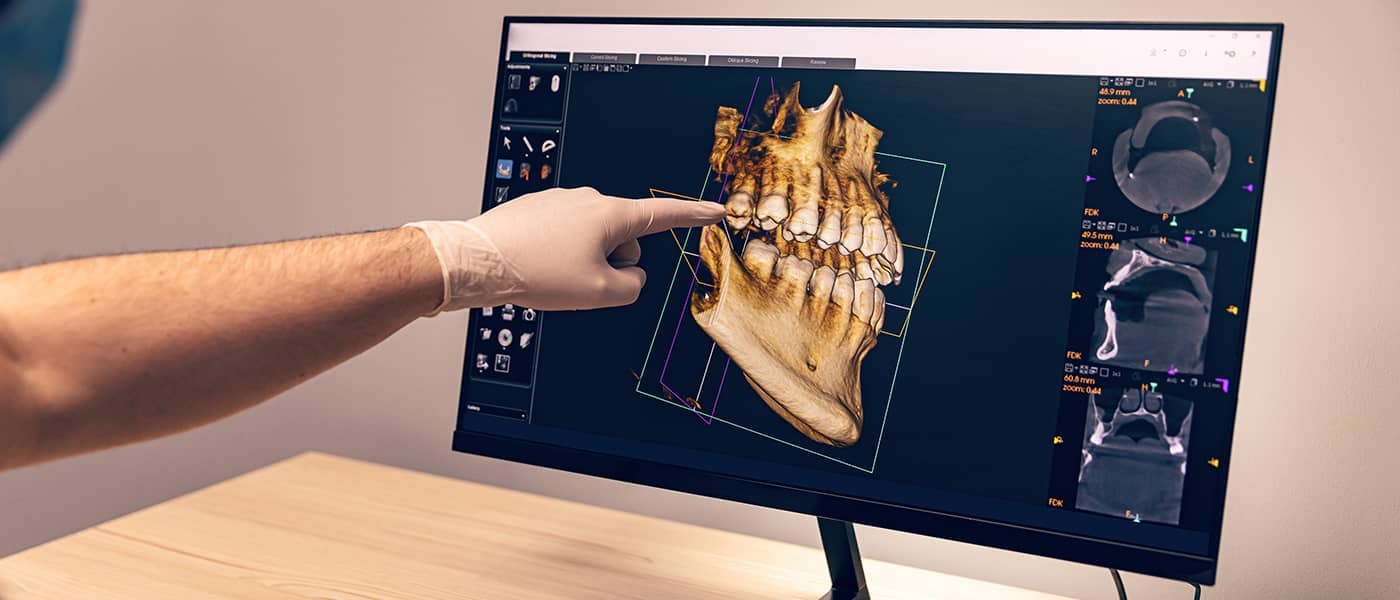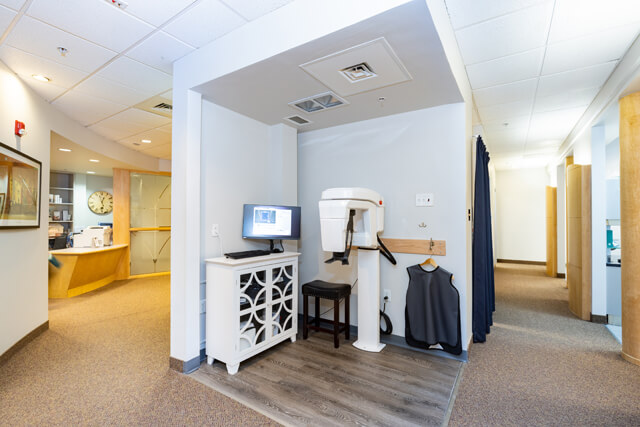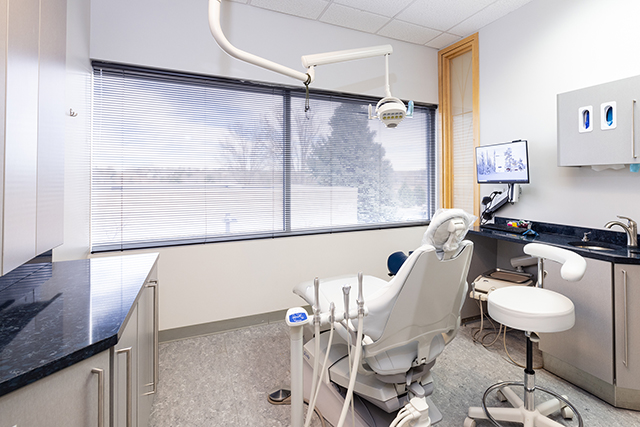Oral Pathology

Focus:
Oral pathology is a specialized field in dentistry focusing on the study and diagnosis of diseases affecting the oral and maxillofacial regions.
We emphasize the importance of early detection and diagnosis to ensure effective treatment and management of oral diseases.
Common Oral Conditions
Understanding the various conditions that can affect the oral and maxillofacial regions is crucial for maintaining optimal oral health.
These conditions range from minor infections to more serious diseases such as oral cancer. By recognizing the early signs and symptoms of these ailments, patients can seek timely intervention and treatment.
Oral Cancer and Precancerous Lesions
We closely monitor for signs of oral cancer and precancerous lesions, including leukoplakia and erythroplakia, as part of our comprehensive oral cancer screening process.
An early and accurate diagnosis of these conditions is crucial for successful treatment.
Infections and Inflammatory Diseases
Our center provides expert care for various infections such as bacterial infections, viral conditions including cold sores, and fungal infections like candidiasis.
We are skilled in managing inflammatory diseases such as lichen planus and autoimmune disorders like Sjögren’s syndrome, which can have significant oral manifestations.
Salivary Gland Disorders
Our diagnostic services extend to conditions affecting the salivary glands, including salivary gland tumors. Proper function of these glands is vital for maintaining oral hygiene and managing issues like dry mouth and bad breath.
Warning Signs
You should always let your dentist know of any changes in the soft tissues of your mouth. These changes include:
- Persistant sores that are won’t heal
- Unexplained tingling or numbness in the mouth
- Bleeding that can’t be stopped
- Discolorations including white, red, or brown patches
If you notice any of these signs, book an appointment with your dentist right away, or contact us directly. You do not need a referral to book an appointment at our office.
Regular check-ups with your primary dental provider are the best way to detect any potential oral health issues and prevent disease progression. You should see your dentist once a year for a comprehensive exam, and more frequently if you have a history of oral health problems.
All patients should be screened for oral cancer at least once a year. You are at a higher risk of developing oral cancer if you:
- Are over the age of 40
- A smoker
- Consume excess amounts of alcohol
- Have a history of cancer
- Have an oral HPV infection
Treatment for oral cancer is most effective when it is caught early, so do not delay seeking professional help if you are experiencing any of the warning signs.
Benign Conditions of the Oral Cavity
While some oral conditions can be potentially harmful, many others are benign and only require minimal intervention.
Cold Sores
Cold sores, also known as fever blisters, are small, fluid-filled lesions that typically appear on or around the lips.
They are caused by the herpes simplex virus (HSV), most commonly HSV-1, and are highly contagious. Cold sores usually start with a tingling or burning sensation before progressing to blisters.
Though these sores generally heal on their own within a couple of weeks, antiviral medications can help expedite recovery and reduce the frequency and severity of outbreaks.
Topical ointments can provide symptomatic relief, and maintaining good hygiene practices is essential to prevent the spread of the virus to others.
Canker Sores
Canker sores, also called aphthous ulcers, are small, painful lesions that can occur on the soft tissues of the mouth.
Unlike cold sores, which are caused by a virus, canker sores have no known infectious cause and are not contagious.
They typically go away on their own within a week or two but can be managed with over-the-counter pain relievers and topical medications to reduce discomfort.
Oral Thrush
Oral thrush, or candidiasis, is a fungal infection that can affect the mouth and throat.
It is caused by an overgrowth of the fungus Candida albicans, which is naturally present in our bodies. Thrush typically appears as creamy white patches on the tongue and inside of the cheeks.
Treatment involves antifungal medications prescribed by a dentist or physician.
The Role of Biopsy in Diagnosis
A biopsy is a procedure where a small piece of the affected tissue is removed and analyzed.
The mucosa (the lining in your mouth) is the most common area used for a biopsy. Biopsies are also taken of other affected areas of the mouth.
There are two main types of biopsies: incisional and excisional.
- Incisional biopsy: A small piece of the tissue is removed for analysis. This is usually done to diagnose precancerous lesions or early stages of oral cancer.
- Excisional biopsy: The ntire lump or or suspicious growth is removed. This is usually done when the lump is small.
Treatment Options
When we receive the results of the biopsy, we may do the following:
- Monitor: If the biopsy results suggest a benign condition that poses minimal risk, we may opt for a conservative approach by monitoring the area for any changes over time. Regular follow-up visits ensure any potential issue is addressed promptly.
- Correct defect left by the biopsy: In cases where the biopsy leaves a significant defect, we offer procedures to correct these defects, ensuring optimal healing and function of the affected area. This might involve suturing, grafts, or other reconstructive techniques.
- Refer to a specialist: Should the biopsy reveal a condition that requires specialized care, we will refer the patient to a relevant specialist, such as an oral surgeon or oncologist, who can provide targeted treatment and expertise.
- Palliative medications: For conditions where curative treatment is not feasible, we focus on palliative care. This involves providing medications to manage symptoms, minimize discomfort, and improve the patient’s quality of life.
After obtaining the results of the biopsy,
- Monitoring: If the biopsy results suggest a benign condition that poses minimal risk, we may opt for a conservative approach by monitoring the area for any changes over time. Regular follow-up visits ensure any potential issue is addressed promptly.
- Correcting Biopsy Defects: In cases where the biopsy leaves a significant defect, we offer procedures to correct these defects, ensuring optimal healing and function of the affected area. This might involve suturing, grafts, or other reconstructive techniques.
- Specialist Referral: Should the biopsy reveal a condition that requires specialized care, we will refer the patient to a relevant specialist, such as an oral surgeon or oncologist, who can provide targeted treatment and expertise.
- Palliative Medications: For conditions where curative treatment is not feasible, we focus on palliative care. This involves providing medications to manage symptoms, minimize discomfort, and improve the patient’s quality of life.
Each treatment plan is tailored to the patient’s unique needs, emphasizing a thorough and personalized approach to oral healthcare.


